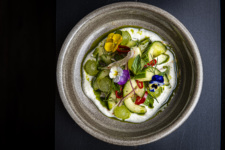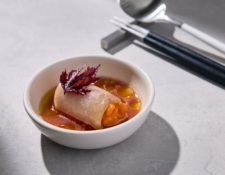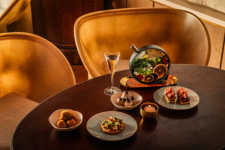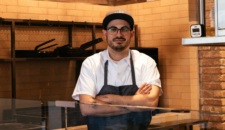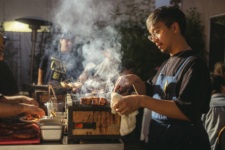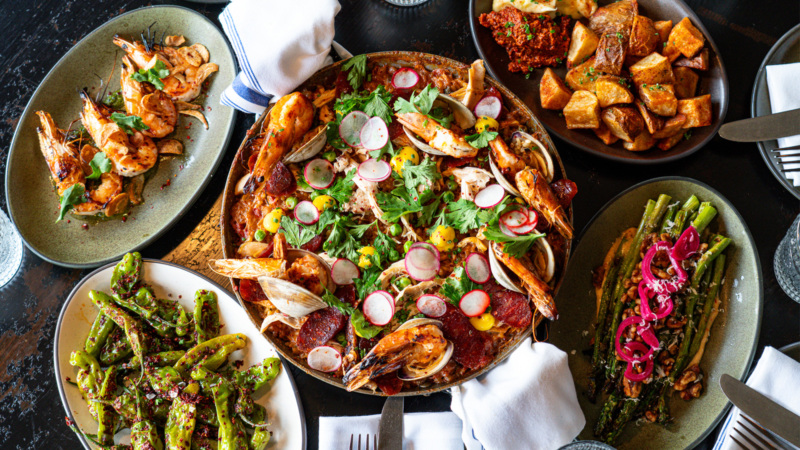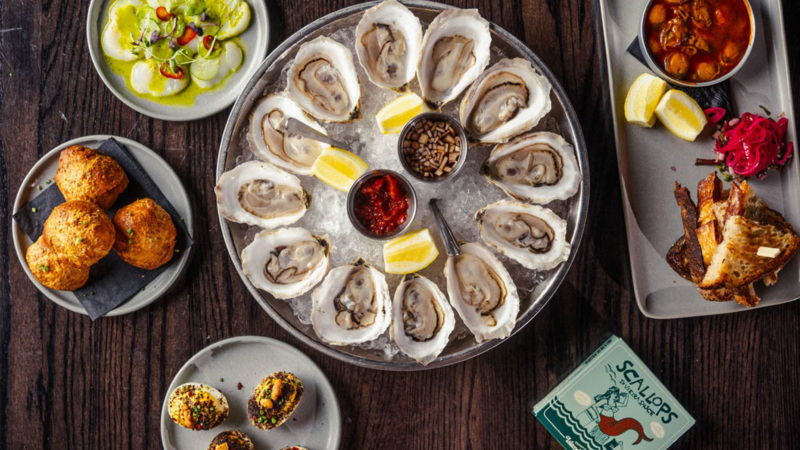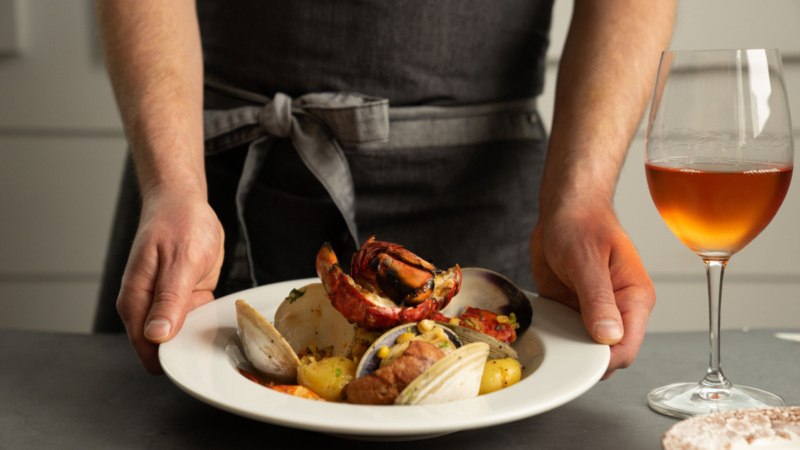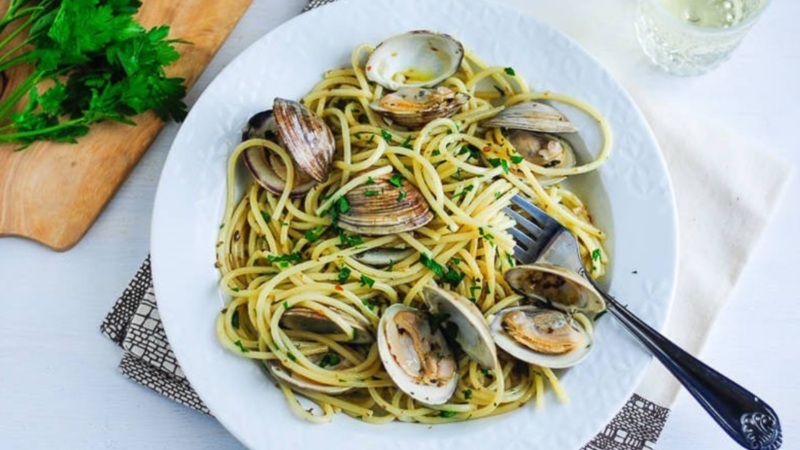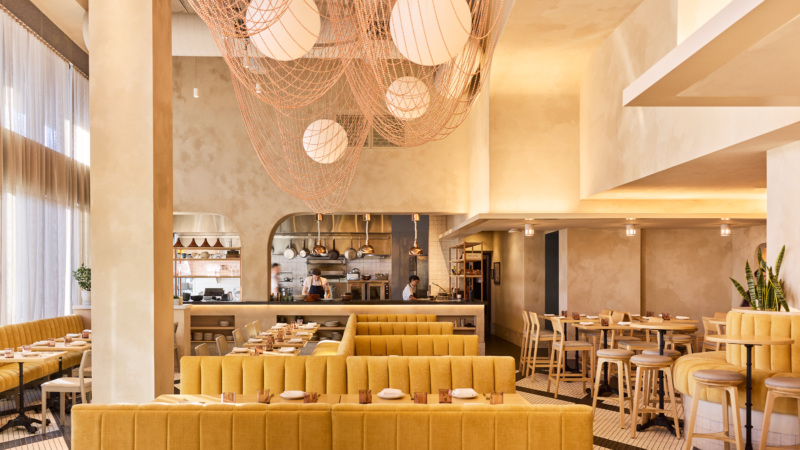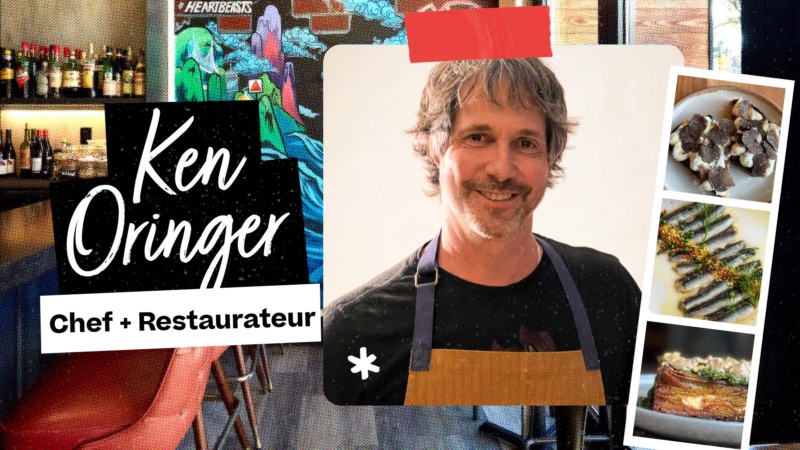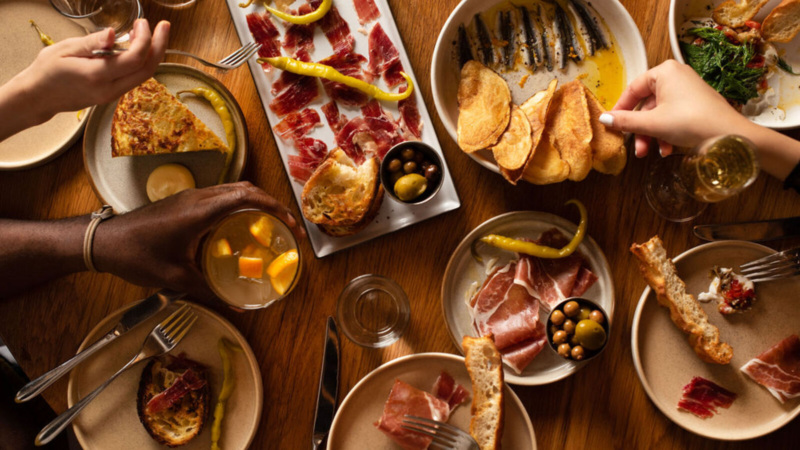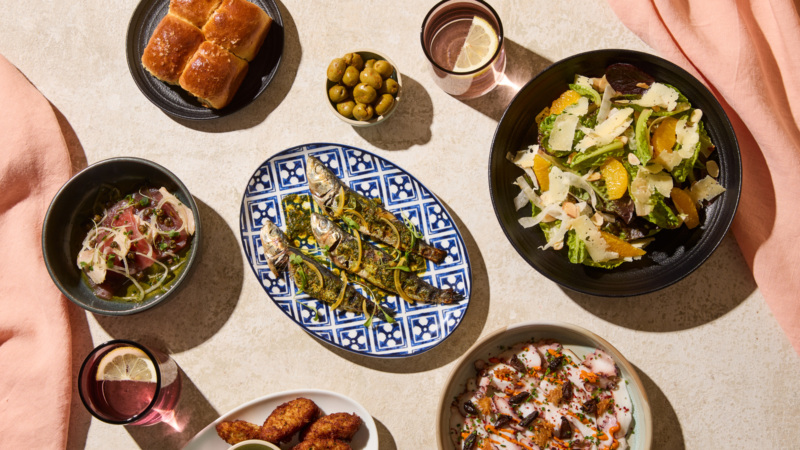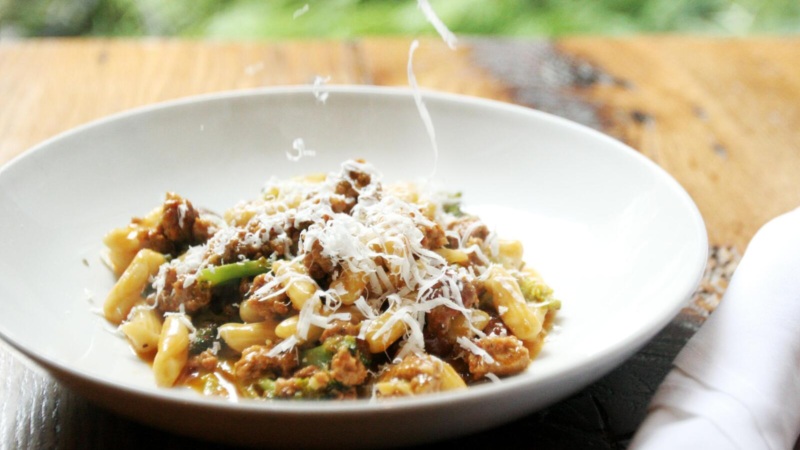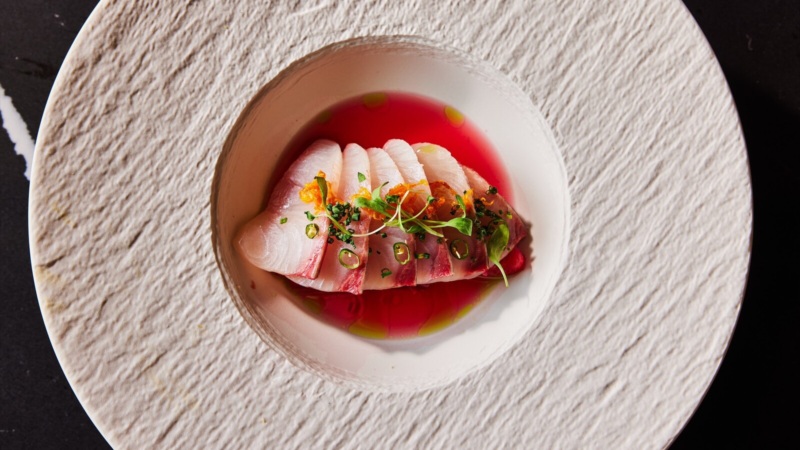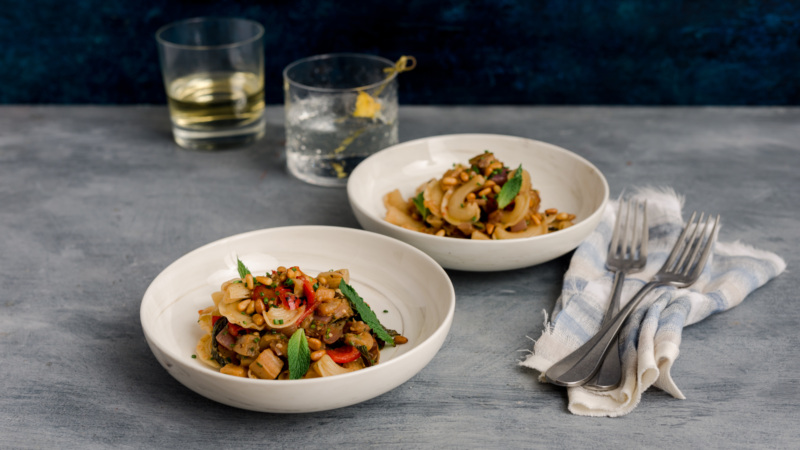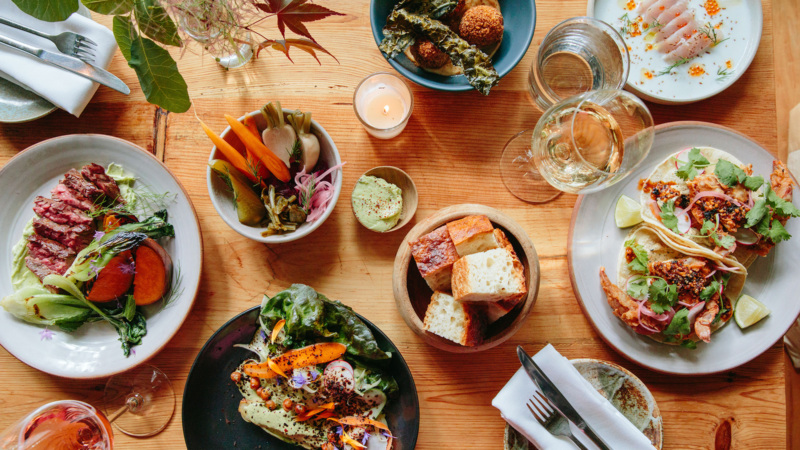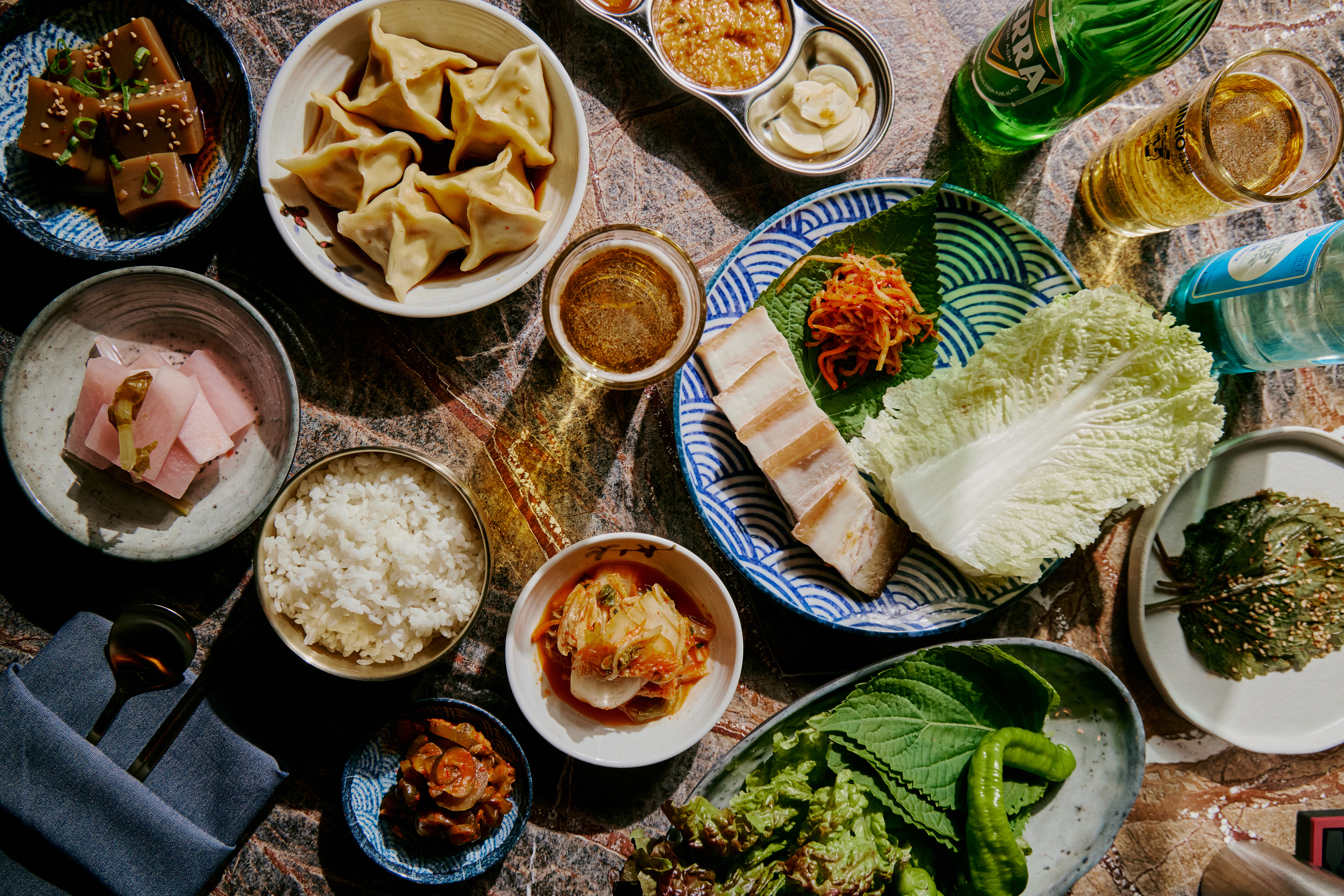
At Boston’s Somaek, A Melding of Family Ties and Korean Tradition
Somaek is unabashedly, unequivocally, and unmistakably a Korean restaurant. Chef Jamie Bissonnette and his mother-in-law wouldn’t have it any other way.
Named for a traditional cocktail of beer and the clear spirit soju, Somaek, which opened in March in Boston’s Downtown Crossing, is not merely Korean-ish. (Not that there’s anything wrong with Korean-ish!) Nor is it a celebrity chef’s fastandloose mashup of gochujang-fueled fare. Nor are the dishes Koreanlite. You won’t find trendy riffs on sool jib snacks or saucy fried chicken here.
The menu — written in Hangul and phoneticized in English — offers an array of soulful, homestyle dishes: from plump mandu dumplings and steaming bowls of doenjang jjigae, to egg-battered sesame leaves stuffed with seasoned ground beef. These specialties, as well as some excellent banchan (do not miss the acorn muk and carrot muchim) lean as far away from the f-word as they can go. “When we went into this, we were thinking ‘We’re not going to be fusion,’” Bissonnette explains. “Somaek is the opposite of that.”
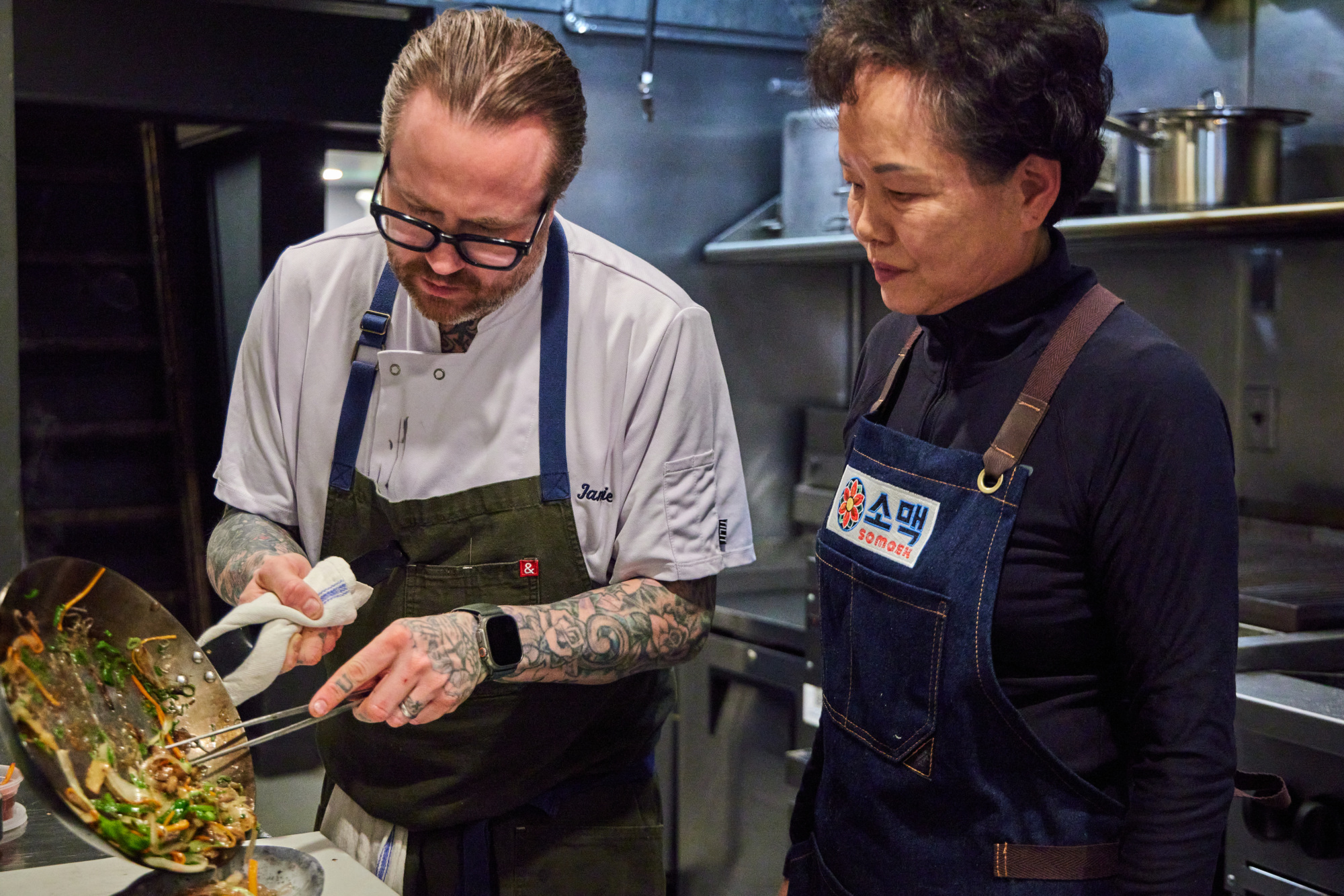
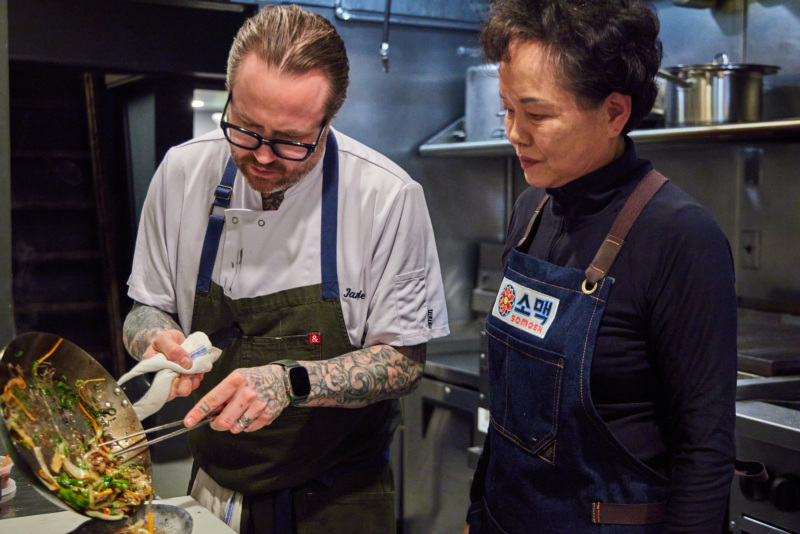
The “we” Bissonnette is talking about explains a lot about Somaek’s existence. The James Beard Award winner is referring to the family he married into. He and his wife, Song Bissonnette, recently celebrated their fourth anniversary, and Song’s mother Soon Han is Somaek’s consulting chef. Originally from the city of Anyang, south of Seoul, Han is an accomplished home cook and former school principal. Bissonnette describes her as a natural educator who commands respect. “She terrifies the cooks because they are so intimidated by her, even though she’s so sweet,” he says. “I think it’s the first time she has been in a kitchen with an apron on where everyone is calling her ‘chef.’” He calls her Mom.
At the same time, Somaek marks a new chapter for Bissonnette, after he parted ways last year with longtime business partner Ken Oringer, a fellow Beard winner whose restaurants include Toro, Coppa, Faccia a Faccia, and the new Verveine. The chef shifted to partner with industry veterans Babak Bina and Andy Cartin; the three formed a new hospitality group, BCB3. Early on, Bina and Cartin asked their new business partner what excited him most. His immediate reply: He wanted to open a Korean restaurant. They knew Bissonnette was serious when he and Song invited them on their pandemic-postponed honeymoon to Korea. In January, the team ate and drank its way through Seoul on a whirlwind trip, hosted by Song’s relatives. By the time they returned, plans for Somaek were well underway.
Resy Presents
Tables Worth a Trip

-
40 Restaurants Across America Worth a Journey
Our list-of must-visit tables this summer. - Never Mind ‘Authentic.’ Fermin Núñez Is Defining the Mexican Food of Today
- Why Burdell’s Debut Is So Special and Inspiring — Especially For Chefs
- At Houston’s March, Felipe Riccio Isn’t Afraid to Get Deep
- At Dakar NOLA, New Orleans Cooking Finds a New Path to Its Roots
- The Resy Guide to Cape Cod Restaurants for 2024
- The Resy Guide to California Wine Country For 2024
- The Ultimate Resy Guide to the Hamptons
And not just Somaek: It’s but one of three separate but physically connected dining concepts. Directly next door is Temple Records, a Tokyo-style listening bar showcasing a sampling of Bissonnette’s extensive vinyl collection. One evening, you might hear vintage Stevie Wonder or Herbie Hancock playing from a sleek turntable, while a crystal-clear cylinder of ice, imported from Japan, clinks in your highball glass. Finish your drink and take the stairs one floor down to Sushi @ Temple Records. (Everyone here refers to it as “Sushi At.”) The subterranean space houses a polished hinoki-wood counter that gleams under soft light. The space telegraphs the vibe of a zen garden, a setting to enjoy pristine nigiri and exceptional sake.
The three venues, all of which debuted in March, are housed under the same roof on Temple Place, a bustling corridor connecting the stately green of Boston Common to the grittier shopping district of Downtown Crossing. The location is advantageous. Bina and Cartin’s stalwart establishments — pub JM Curley, steakhouse Bogie’s Place, as well as a newer cocktail haven, The Wig Shop — occupy the same block. Here, out-of-towners can pack in a weekend’s worth of dining and drinking without ever leaving this slice of downtown.
If a pull-no-punches Korean eatery strikes you as a departure for Bissonnette, you wouldn’t be the first to be surprised. You might assume that the chef’s style was typified by what’s on offer at Little Donkey, the global tapas spot he and Oringer launched in Cambridge’s Central Square almost a decade ago. On that menu, Turkish manti cozy up to shiitake-stuffed pupusas, crispy squid on Vietnamese bologna, and a very respectable cheeseburger. If that fusion-forward approach represents one phase of Bissonnette’s career, it appears he has closed that chapter. Nowadays, he is intent on expressing something more personal, with a more plumb-line approach.
His fidelity to traditionalism can be seen in how he makes bibim guksu. The cool, slippery tangle of wheat noodles — dressed in a spicy-tangy sauce — arrives to the table in a shallow metal bowl, garnished with a medium-soft egg, halved to reveal an unctuous yolk. Julienned cucumber and a thatch of shredded gim — toasted seaweed — round out the presentation.
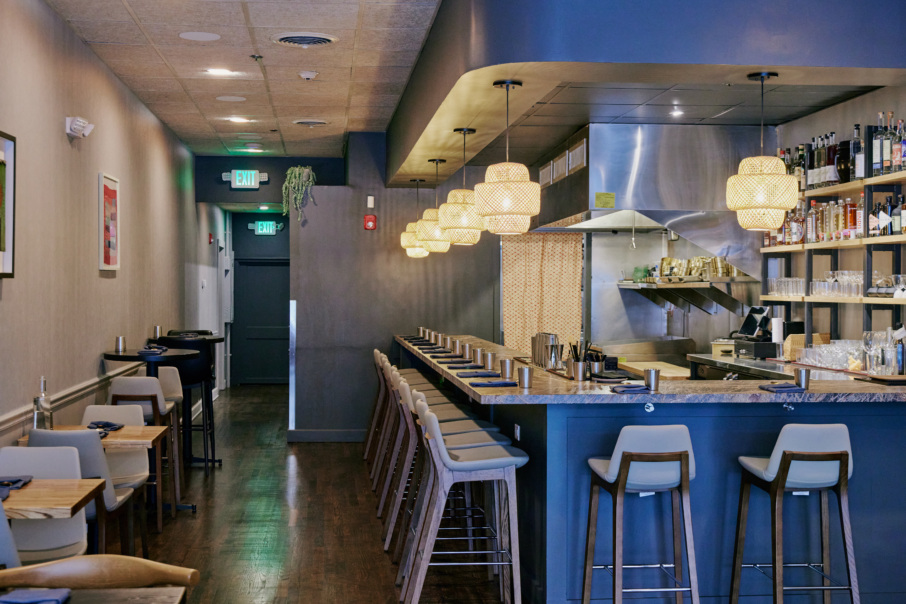
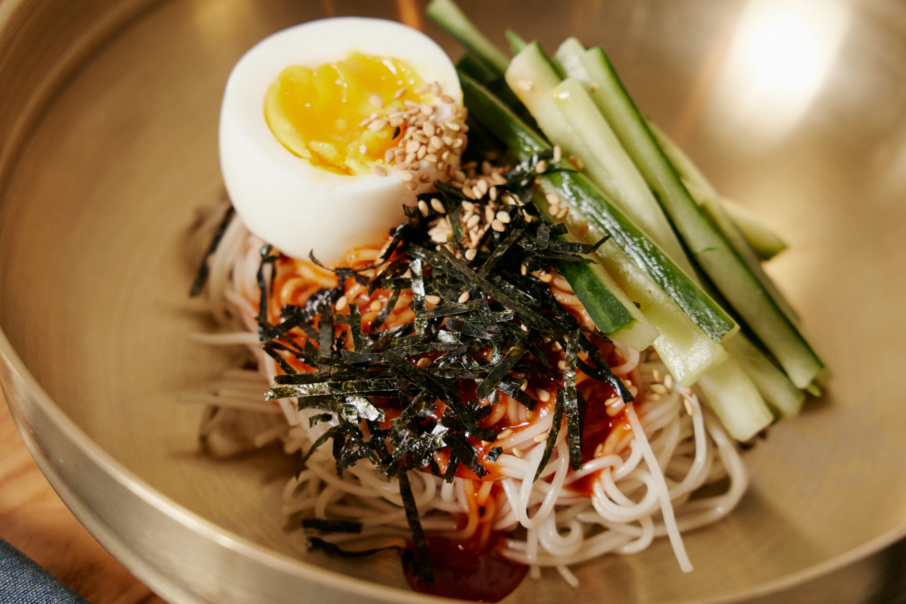
“I’ve heard people come in and say, ‘Oh, so this is your take on bibim guksu?’ And I guess I don’t know how to answer that,” he says. “Yeah, it’s my take on bibim guksu, but I’m not trying to make it my own. I’m trying to make it a really good bibim guksu, because I love it and it reminds me of being in Seoul.” He makes his own cheong from blackberries instead of purchasing the store-bought version of the sweetener. He also plans to incorporate seasonally foraged ingredients like fiddleheads and ramps into a few of the dishes. But that is as far as he will go.
“I’m trying to stay as close as I can to how I’ve seen it done before — and how Mom thinks it should be,” he says.
His relationship with his mother-in-law developed around food. Early on, back when he and Song were dating, they visited her parents, who reside north of Boston. Han made an exquisite version of haemul pajeon, the familiar seafood-scallion pancake. “It blew my mind,” he recalls. “The simplicity of the pancake, and the subtlety of the vinegared soy sauce wakes the entire thing up.” He and Han made plans to cook together. On a subsequent visit, she taught him to make kimchi. On another, he taught her how to make paella. His respect and affection for Han is palpable. So is his refreshed sense of energy.
“I feel like I’m learning again,” Bissonnette says. “Usually, in your late 40s or early 50s as a chef, you become somebody’s mentor. So to have someone mentoring me in a new cuisine — it feels pretty freakin’ cool.”
I feel like I’m learning again. Usually, in your late 40s or early 50s as a chef, you become somebody’s mentor.— Jamie Bissonnette
No question — but what might be even more noteworthy is that he’s upending a common trope: an acclaimed American chef takes recipes from his Korean, or Italian, or Mexican explorations and opens a restaurant based on those dishes. Bissonnette, though, is making a point of collaborating with his new family, lending his success to their expertise. It’s a truly communal endeavor. Song came up with the initial sketch of the restaurant’s logo, inspired by Korean temple art, and her father approved of naming the spot after the ubiquitous working-man’s beverage. Bissonnette recalls his father-in-law’s reaction: “He smiled and said, ‘That’s good. People will know it’s Korean.’”
This is very much by design — reflecting Bissonnette’s desire to maintain a certain respect when spotlighting Korean culture: “There’s a responsibility for people who have a platform.”
But the complexity of all this is also what makes it remarkable. Bissonnette, at 47, is not just going back to basics; he’s going to someone else’s basics, electing to be mentored by a home cook representing an entirely different culture — one quite different from his upbringing in Collinsville, Conn. And he is using his national platform to bring to scale and faithfully transmit his mentor’s sohn-mat — her instinctual feel and flair for cooking — to a wide audience. This was no mere flirtation with Korean cuisine. Bissonette figuratively, and literally, put a ring on it.
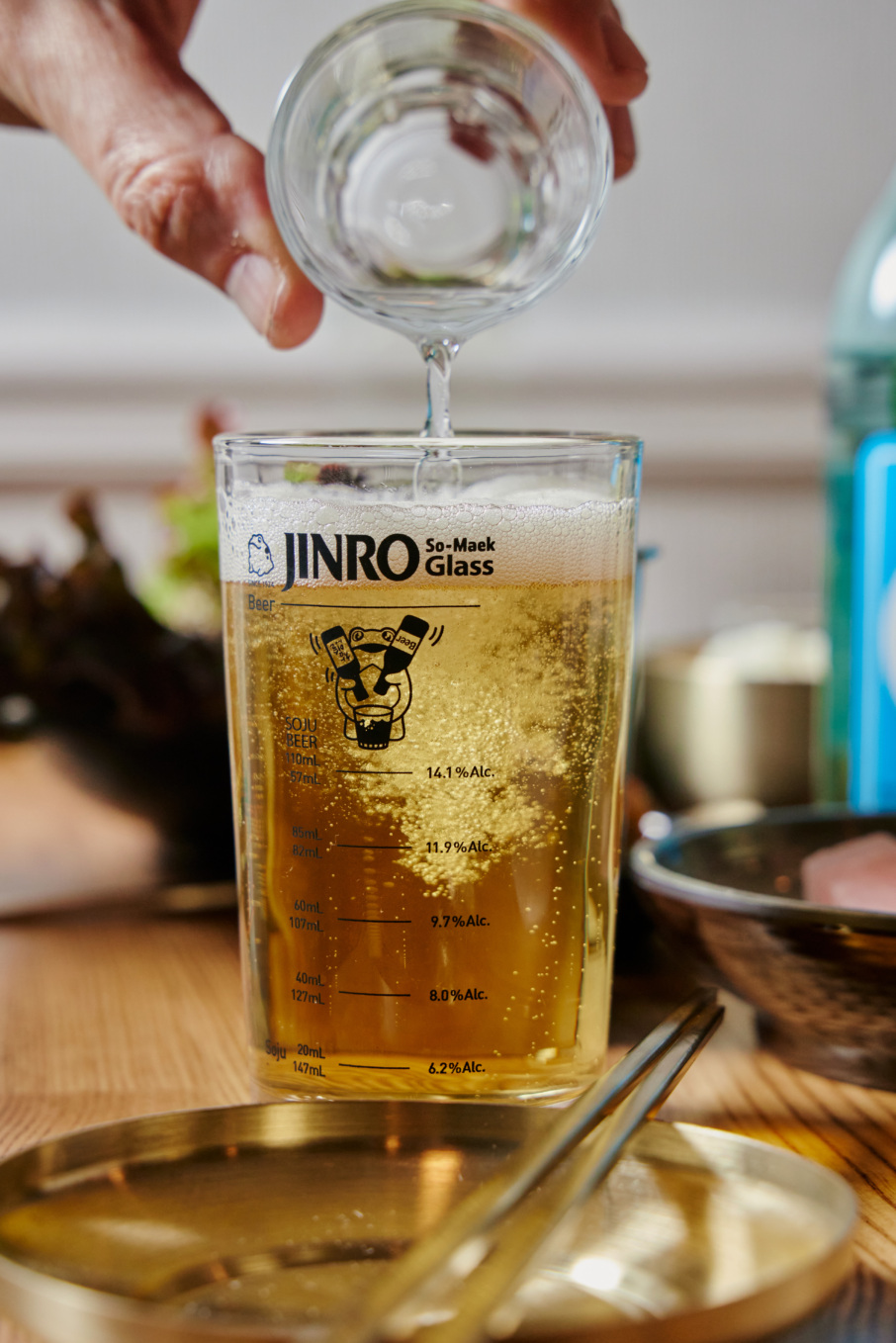
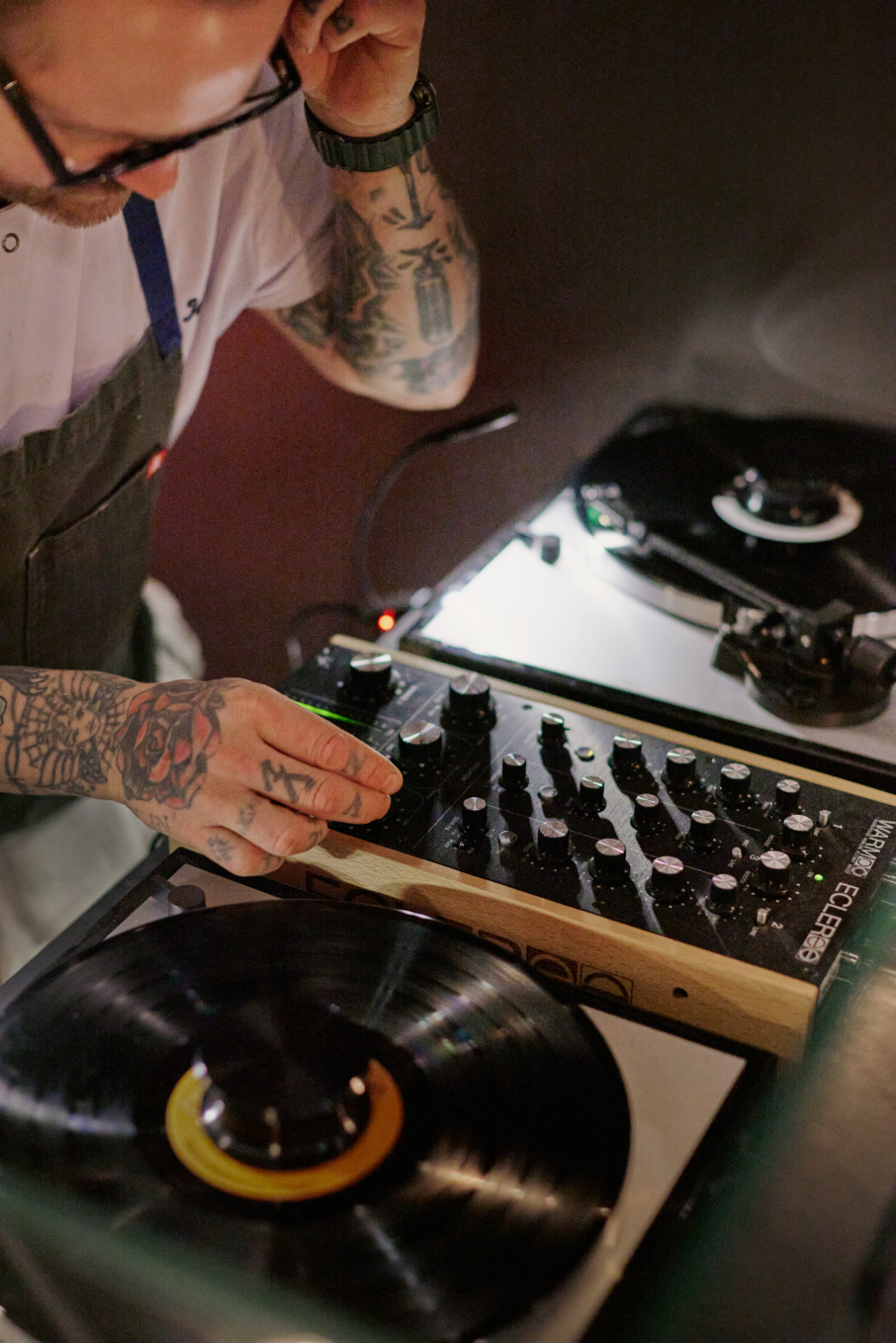
On a Saturday night, Somaek’s compact dining area and 13-seat bar are filled to capacity. Near the front windows, tables have been pushed together to accommodate a party of college students, enthusiastically diving into ojingeo bokkeum — stir-fried squid and peppers with chewy tteok rice cakes — as well as platters of bo ssam. One dabs ssamjang expertly onto steamed pork and folds a fatty slice into a Napa cabbage leaf. Next to them, a couple is dressed for a night out. They make quick work of jabchae and bulgogi before heading out to the clubs.
If there is a way in which Somaek diverges from the straight and narrow, it’s at the table: Dishes of banchan don’t arrive automatically; you select the ones you would like, and they arrive, like the main courses, when they are ready. Here, there are no dumb questions, and no wrong way to enjoy yourself. Energetic servers seem to take genuine pleasure guiding you to a new favorite drink or dish. Nearby, one shows a patron how to blend the restaurant’s namesake beverage, combining a measure of soju with maekju (beer) into a tall glass. She taps a long-handled spoon into the glass, agitating the liquid so that a plume of froth rises to the surface. At an adjoining table, a diner leaves his chopsticks untouched and picks up a wedge of seafood pancake by hand, dredging it in sauce before popping it in his mouth. No one bats an eye.
That sense of comfort was, in fact, a key element in Bissonnette’s plan. For him, it evokes how connected he felt in Seoul, eating and drinking with extended family.
“I hope everybody gets to experience that feeling at least once in their life about something,” he says. “Because for me, it warmed me inside, and it recharged me.”






